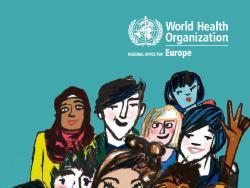European Youth Health Report show shocking lack of attention to LGBT youth

28 March 2016 - Recently, the HSBC report report on the health situation of youth in Europe came out. Although many reports show that LGBT youth suffer significant health risks, once again the HSBC does not give any attention to these health risks. Peter Dankmeijer, director of GALE, comments: "I am shocked that after all these years, these is still a systematic silence about sexual diversity".
Family protection most significant factor
The data shows once again that the role of family is a major protective health factor for youth. Even when this role is gradually declining, it still is very important. Adolescents rely less on their family support than younger children, but still need them. There is no mention about the lack of support for LGBT youth, which has been widely shown in other research.
Traditional gender issues persist
The new HBSC data reflect gender-specific social relationships shaped by gender socialization. This is the process by which boys and girls learn feminine and masculine identities. Gender behavior also appears to be influenced by societal expectations. The HSBC report confirms that stereotypical gender behaviors among boys and girls till persist and may lead to harmful behavior to themselves and to others. Here again, any attention to gay/lesbian or transgender youth is lacking. One of the policy recommendation is that structural factors around gender and health needs greater exploration. The United Nations Sex Inequality Index is mentioned as an instrument to assess associations between gender inequality and health outcomes. However, this instrument is also blind for LGBTI issues.
Antibullying recommendations
The report mentions aggressive behavior continues to be an important public health problem. It concludes activities such as parent training and meetings, improved playground supervision, disciplinary methods, classroom management, teacher training, classroom rules, a whole-school antibullying policy, school conferences, information for parents and cooperative group work are effective in reducing bullying. Prevention programs should be long-lasting (more than six months) and evidence -based. For adolescents
programs focusing on bystanders are more effective. Here again, the HSBC report is missing the link with homophobic and transphobic bullying. Apparently, WHO is not aware of the work on homophobic bullying by other UN agencies, like UNESCO and UNDP.
Source: Growing up unequal: gender and socioeconomic differences in young people’s health and well-being


